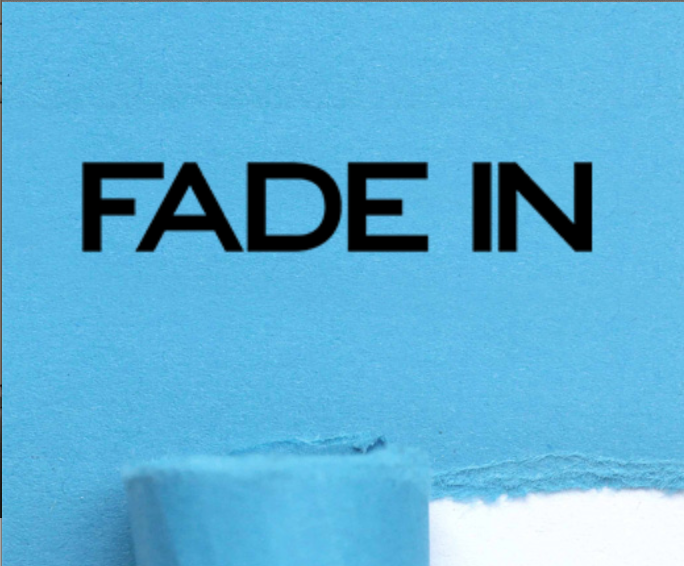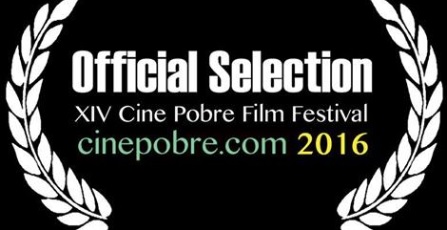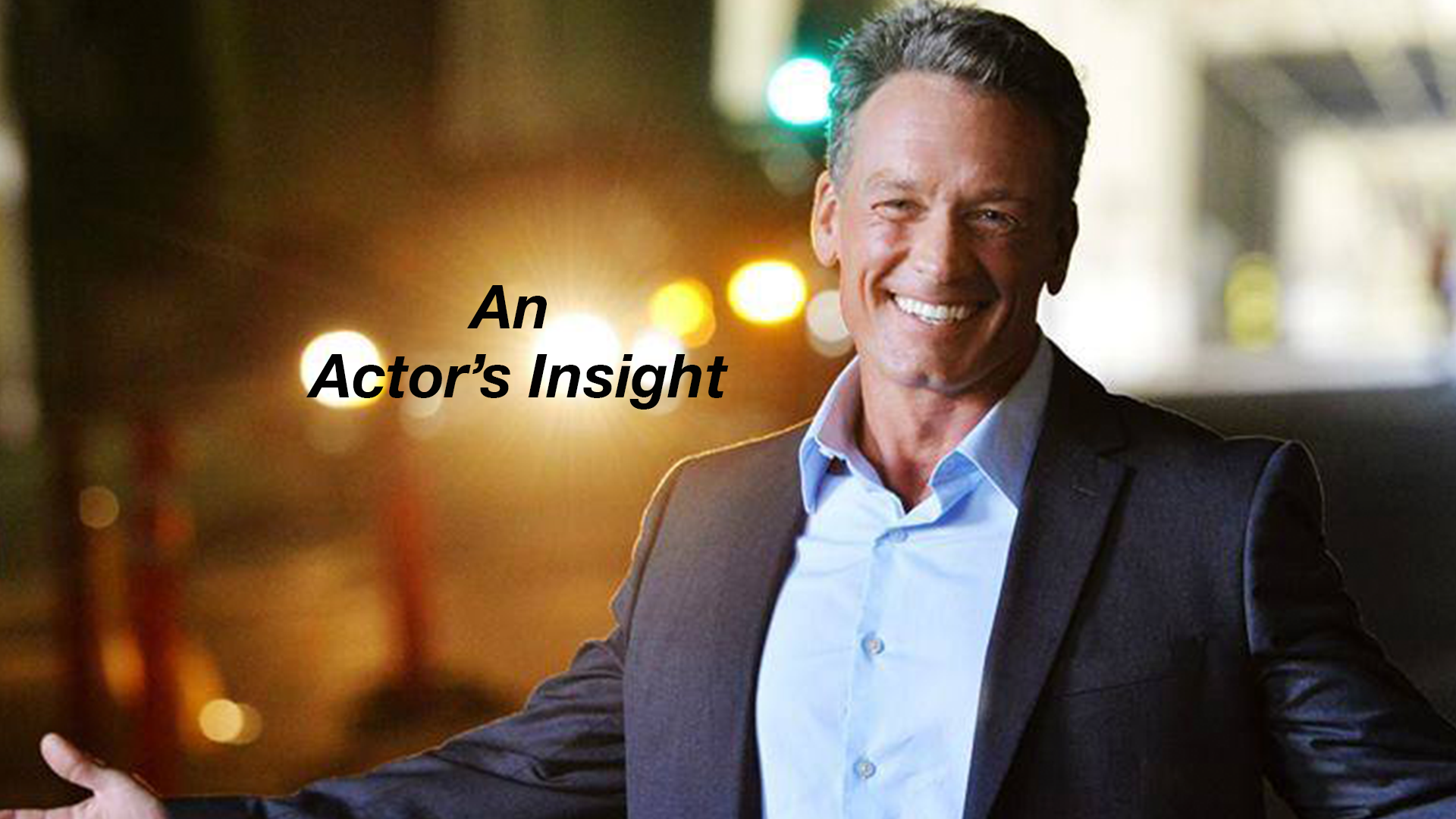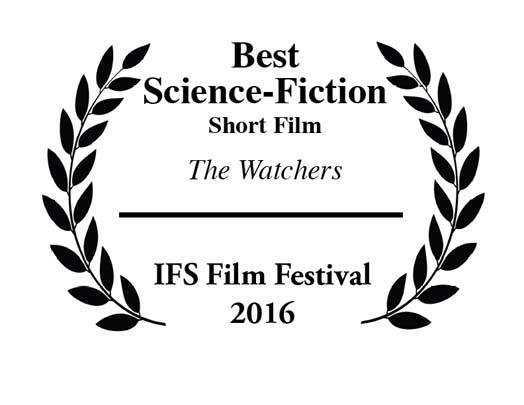SSP STAFF WRITER: ENTERTAINMENT ZONE: December 1, 2020
Well, December 2020 has finally arrived. In a year filled with tragedy, we are glad that our friend Gilbert Glenn Brown can be a beacon of light. We sat down with him today to talk about his upcoming movie Respect with Jennifer Hudson due out this January as well as his career in Hollywood.
Gilbert, tell our followers a little about yourself.
I’m an actor, writer and director. I see myself as a bit of a Renaissance man in that respect. I was born and raised in New York City. I’m the middle child of five siblings. My parents immigrated from Jamaica and I was raised in a Caribbean household that strongly emphasized love for our heritage and what it means to be hardworking and family-oriented.
What attracted you to begin a career as an actor?
Initially, I just thought acting was fun. I’d always been creative, whether it was drawing my own comic books, writing short stories or singing and dancing. But I didn’t see acting as a career at first. One of my favorite actors was Sidney Poitier. Watching him on screen was the first time it occurred to me that being a professional actor could be possible. Then, when I was in high school, a few of my teachers exposed me to theater on Broadway. One production that really affected me was The Tempest, with Aunjanue Ellis and Patrick Stewart, directed by George Wolfe. I wanted to be involved in that world. So, I became a member of Mind Builders Creative Arts Center Positive Youth Troupe. It was a touring youth musical theater troupe that focused on issues facing young people. For the first time, I saw young people like myself onstage talking about issues and challenges I was facing in my own life. Participating in Mind Builders inspired me to devote myself to my craft.
Was there a particular event or time that you recognized that acting was not just a hobby, but that it would be your life and your living?
When I was about 15 years old, I went on tour with the Positive Youth Troupe. We had a week-long engagement in Detroit. That trip allowed me to see that my love of theater could take me places that I never thought I would go and see things that I never thought I would see, considering where I grew up.
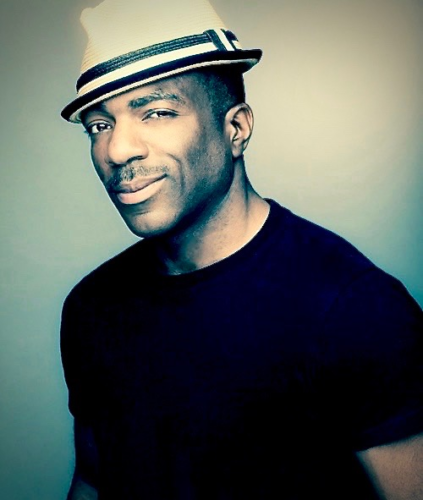
Was it harder to get started or to keep going? What was the particular thing that you had to conquer to do either?
I found it harder to keep going because in this business, you hear “no” more often than “yes.” You need to have a strong sense of self, a community of like-minded people to encourage you and, for me, a solid spiritual foundation. Otherwise, the rejection can dim your light. But having the right support system in place can make the difference between giving up or persevering. A lot of times you can’t see your own progress. That’s where your community comes into play. I have a group of incredible people surrounding me who’ve been able to point out the bigger picture during those times when I started to lose sight of my goals. That always helped me get back on track.
When was your first major role as an actor?
My first major theater role was Lincoln in the play Top Dog/Under Dog. My very first movie was called Raising the Heights.
Describe your acting style.
I would call my acting style adaptive. What I mean by that is that every role I take on requires a different approach and a different vantage point. I’ve been trained in the Meisner technique and I do enjoy the process of method acting. But, honestly, I let the role speak to me and tell me where I need to go. This allows me to hopefully become a living, breathing human being and not just a caricature.
In the new Jennifer Hudson film Respect, you have the honor of playing Dr. Martin Luther King, Jr. How did you land the role?
I was originally asked to audition for another part in the film, but I declined. Though the part was integral to the story, I didn’t feel it was right for me. Sometimes turning down an opportunity is one of the most difficult things that you can do as an actor. But I trusted that it was the right decision for me. A week later, on my birthday, I got a call asking me to audition for the role of Martin Luther King, Jr. Two weeks later, I received a call back. I went into the casting director’s office and two days after that, I was offered the role.
What was your preparation to play such an iconic character? What was your process?
I’ve had the opportunity to play Martin several times, so I’d already done quite a bit of research. I’d done a musical in NY based on Martin’s early life, I also had the opportunity to present a staged reading of Mountaintop before it went to Broadway. Then I did the national tour of Mountaintop and starred in the LA production of the show in 2019. Martin is a wonderfully complex and powerful person. For me, approaching the role wasn’t just about having his intonations and being able to deliver his speeches. It was about showing that he was a living, breathing human being who was deified, but who never saw himself that way. He only saw himself as a man for the people, with aspirations and fears, hopes and doubts. I wanted to present him that way.
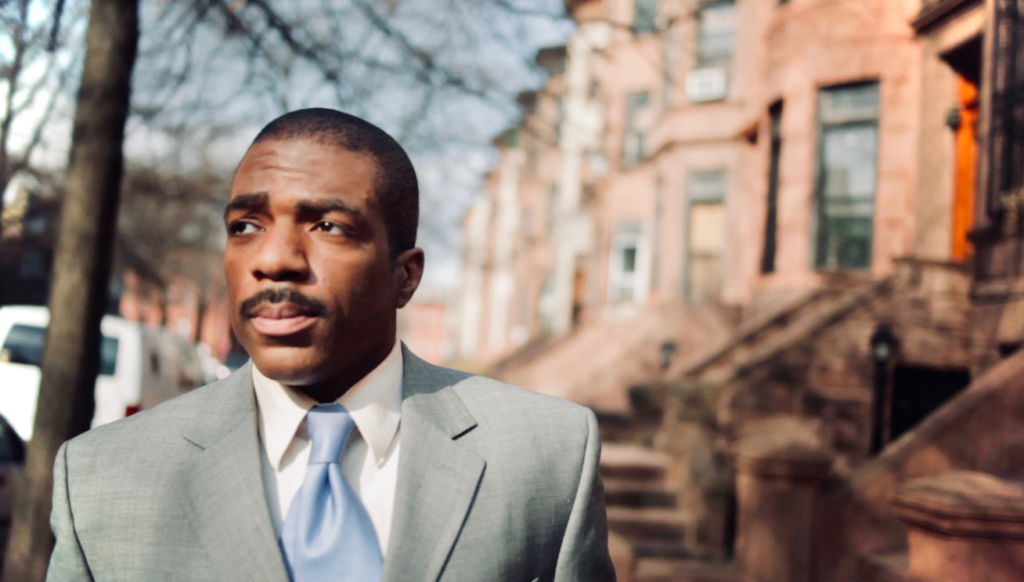
What was the biggest challenge about taking on this role?
The biggest challenge about this role was the size and scope of the overall vision of telling Aretha’s story. The scope of the film is huge. How do you encapsulate a life of that magnitude in 2 ½ hours? How do you include all the amazing people in history who Aretha was connected to? Telling her story was not a simple feat. I also had the opportunity to share the screen with some of the actors and artists that I’ve admired for years. It was humbling and a little intimidating initially.
What’s your favorite cast moment?
One of my favorite cast moments happened at the end of one of our long shoot days when all of the cast ended up in the hair and make-up trailer at the same time. It was a long, grueling day. But everyone’s spirits were still high. Everyone was laughing and joking and having a great time. Then somebody said, “Hey, let’s take a picture.” And we took this picture of everybody hamming it up.
In 2019, The Best of Enemies hit the big screen. How was it working on that film with so many talented actors?
Before I even walked onto the set, I was on cloud nine. Then the reality set in that I would have to share the screen with these iconic actors. What helped me, once I got past the excitement and anxiety, was to focus on doing the work, preparation and research. The first actor I met was Sam Rockwell, he introduced himself and we talked for a while. He sent me a documentary about the story which included my character that I had never seen before. This was so helpful to me. Everyone on that set brought an intensity to the roles that inspired me to up-level my own performance.
What was your favorite Best of Enemies moment?
In the film, I had a long monologue where I explained the differences between the black and white communities, the human decencies and privileges that aren’t afforded to people in the black community. I received quite a bit of positive feedback on the performance through the rest of the shoot. Another moment was during a break in between takes. A few of the principal cast members — Taraji, Sam, Aaron Smalls and myself — were seated at a table onstage. The crew and background actors were seated in the audience, because we were preparing to continue filming the charette results scene in a gymnasium. Aaron started banging on the table. Then Sam, Taraji and I started rapping “La Di Da Di” in front of the audience! I wish someone filmed that! It was a wonderful moment of connection. It was such a heavy film, having a moment of lightness and fun felt so good.
Did you learn any thing from your Best of Enemies experience that helped you on the set of Respect? Explain.
Yes. We’re all human beings who come together to create something meaningful that can hopefully affect and influence others in a positive way. At the end of the day, no matter who we are, our station, our place in the world, we’re all human beings. We all deserve to be heard, seen and allowed to feel safe.
Have you progressed in your acting career as you have expected?
I don’t think anything ever works out how you want or expect it to. But as long as there’s growth, forward movement and you’re doing what you love, those expectations don’t matter so much. As long as you’re able to take care of yourself and your family and you have the opportunity to be involved in projects that mean something to you, I think that’s the most important thing. Success looks different for different people.
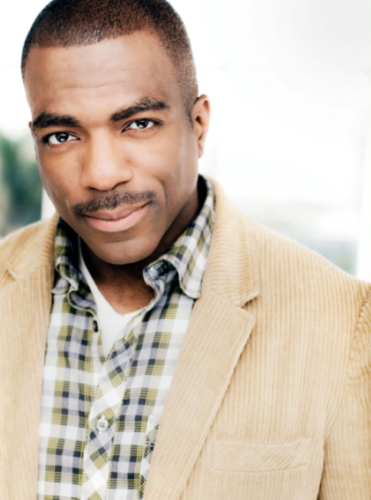
What was the most important lesson you had to learn that has had a positive effect on your career? How did that lesson happen?
I learned that you must have clarity in regards to who you are, what you bring to the table and that being authentically who you are is more than enough. As long as you’ve done everything that you can do to prepare for your opportunity, the door will open. Opportunities will present themselves and you have to discern for yourself if it’s right for you. And sometimes you have to create your own opportunities. As artists, that’s what we do: create something out of nothing.
How have you developed your career? What was your path?
Having mentors has been critical for me. I’ve had some of the same mentors since I was a teenager, and they continue to counsel me. I see mentors in those who, though I may not know them personally, I admire and look up to, artistically, historically or integrally. Also, I depend on my circle of friends, most of which I’ve known for more than half my life. To this day, these people remain real with me and I remain real with them. We’re able to confide in each other and advise each other. Remaining connected to family and community has helped me in my career because that’s what keeps me grounded and focused in this business. I’ve also studied constantly, to make sure that I am always growing and evolving in my craft. I immerse myself in all different kinds of media so I can have a sense of what’s going on out there and what speaks to me as an artist.
How do you seek out roles?
Most of the time, opportunities are presented to me through my representation or through another colleague’s recommendation. Sometimes I’m offered roles because of work that I’ve done on other projects. Other times, I’ll hear about things in passing and do some research into the project to see if it’s a role I might be right for. Most of the roles that I gravitate toward seem to have historic significance. They also need to be aligned with who I am as an artist and as a person. Sometimes it’s just fun to explore other aspects of myself.
Who have been some of your favorite people (directors, actors, co-producers) to work with so far? And why?
Most recently, I’ve had the pleasure of working with Liesl Tommy, the director of Respect. The fact that she’s a seasoned theater director allowed for the space to not just present Martin, but to also embody him. She understands the actor’s process so well. One day, Leisl called me in to watch some footage of the actress who played young Aretha. Watching her helped me take my work to the next level, to allow for another layer of connection. In real life, Martin knew Aretha since she was a little girl. He watched her grow up to become the icon that she eventually became. Liesel wanted me to see young Aretha’s performance because she knew that it would influence how I played my very next speech and scene. She intuitively understood what I needed to elicit the best possible performance. You don’t always get opportunities like that in these huge productions.
What are personal attributes that make for a good actor, and what do you do to foster them?
You need a good sense of self, a great work ethic and you can’t take yourself too seriously. You have to be able to find the fun in the process. Being able to think critically, while releasing self-judgement, will enable you to see yourself and your work objectively. That helps you to be aware of what you bring to the table, while not allowing that awareness to inflate your ego. There’s also a certain sense of generosity that’s necessary in a collaborative field like acting. And it helps to have other interests because your other interests inform your work as well. Be a sponge. Observe, listen and soak up as much information as possible.
When you suffer a setback, how does that emotionally affect you and your work?
If there’s something you really want and it doesn’t happen, it’s natural to feel disappointed or hurt. But these things happen to everyone in life. I do my best to see setbacks as opportunities to learn and grow. I won’t let one “failure” be the thing that takes me completely out of the game. Obviously, that can be easier said than done, but at the same time, we all have the opportunity to experience our lives on our own terms. Just because you fall down doesn’t mean you have to stay down.
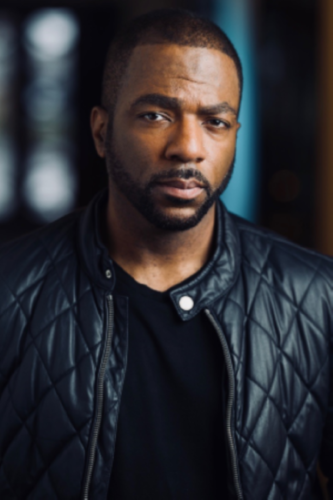
How do you think others see you as a professional? How do you want others to see you as a professional? Explain.
I think others see me as consistent, intelligent and dependable. I would like other people to see me as a man with integrity with a great heart.
Of all the roles you have played in the past, which is your favorite?
I’d like to think that all the roles I’ve played offered some form of enjoyment to the audience and that all of my subsequent roles will allow that as well. If I have to pick one… the first one that comes to mind is when I had the opportunity to play Shango in Terrell Alvin McCraney’s In the Red and Brown Water. It allowed me to relish in playing the bad boy with the heart of gold, that everyone loved and hated at the same time, as well as tap into a li’l sexiness!
Tell me about a time where you had difficulty with a character. What was the role and why was it challenging?
Ah! I played Ogun in Terrell Alvin McCraney’s The Brothers Size. It was challenging because it forced me to explore a darker, more pessimistic side of myself, which really took some time to release.
What has been your greatest accomplishment as an actor?
My greatest accomplishment as an actor would be my longevity. I’ve had many talented peers that I started out with as a young actor who aren’t acting anymore. Most of them, in fact. There’s only a small handful of us left that are still working at this consistently. Being an actor is very challenging and difficult at times, but being able to make a living doing what I love makes it all worth it.
In which area do you still feel that you can improve as an actor?
It’s not possible for me to pick one. I’m consistently growing and evolving. I can learn and improve in every area of my work. I haven’t yet reached the pinnacle of my skill set in any area. I think that every opportunity that I get to work and study is an opportunity to grow and discover things about myself as a person and an artist.
What sort of acting roles will you be seeking in the future?
Ideally, I want to land a series regular role before the end of the year. Just putting it out there…
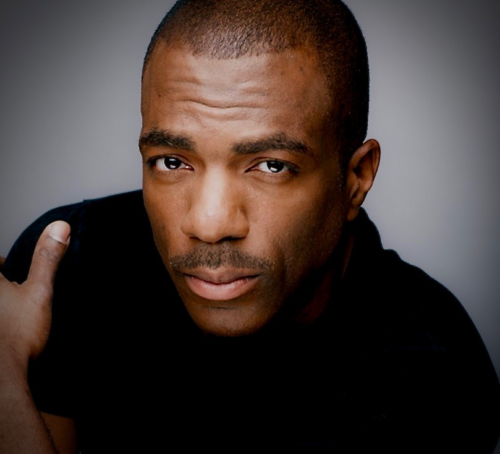
Are you on social media and do you use it in your work? Why or why not?
Yes, I’m on social media. I don’t feel like I utilize it to its fullest potential for my work. I haven’t fallen in love with that aspect of it yet, even though I intend to start using it more regularly. Even though I am a highly fully functioning tech geek, I still have more work to do if I want to get on top of my social media game.
What’s the most useless talent you have?
That made me laugh. No talent is useless! Everything that we’re capable of doing informs some aspect of our lives. But, if I have to find an answer, I would say… ventriloquism. No disrespect to ventriloquists, of course. However, ventriloquism is a skill that I learned when I was little that I have never, ever used in real life. Yet.
What would be a good theme song for your life? And why?
One of my favorite songs is “A Song for You,” by Donnie Hathaway. In my work, I do my best to lay everything out on the table. Hopefully something I’ve done moves you, affects you, makes you think and encourages you to take action.
If you had a magic wand, what wish would you grant yourself and why?
I would grant myself the ability to allow people to connect. There’s so much divisiveness and bullshit and misinformation and lies floating around in the world right now. People are not connecting, but innately want to, need to. I would use my magic wand to remove all those blockages so that we can see and hear and connect with each other on a real level. On the most basic level, that’s what all human beings need and want. Yep, I’m a dreamer, but I’m in good company!
Thanks for your time today Gilbert! We are so proud of all your success!
If you have not checked out The Best of Enemies, you can stream it on Amazon! Wonderful performances!
Don’t miss Gilbert Glenn Brown in Respect this January 2021!! It’s on our list!
To keep up with Gilbert, check out his website – https://www.gilbertglennbrown.com/
Follow us on Facebook and Instagram!
Until next time, live your passion and chase your dreams!
SSP
